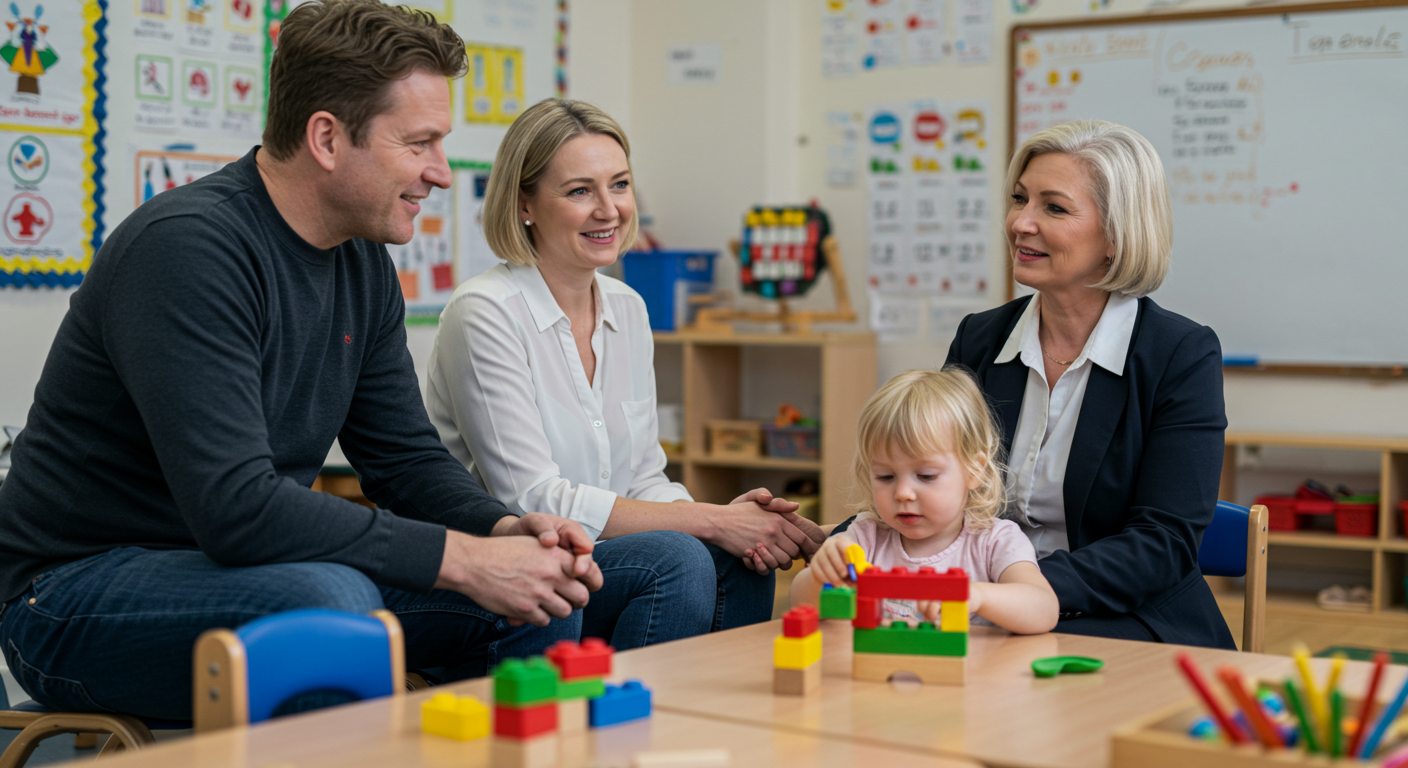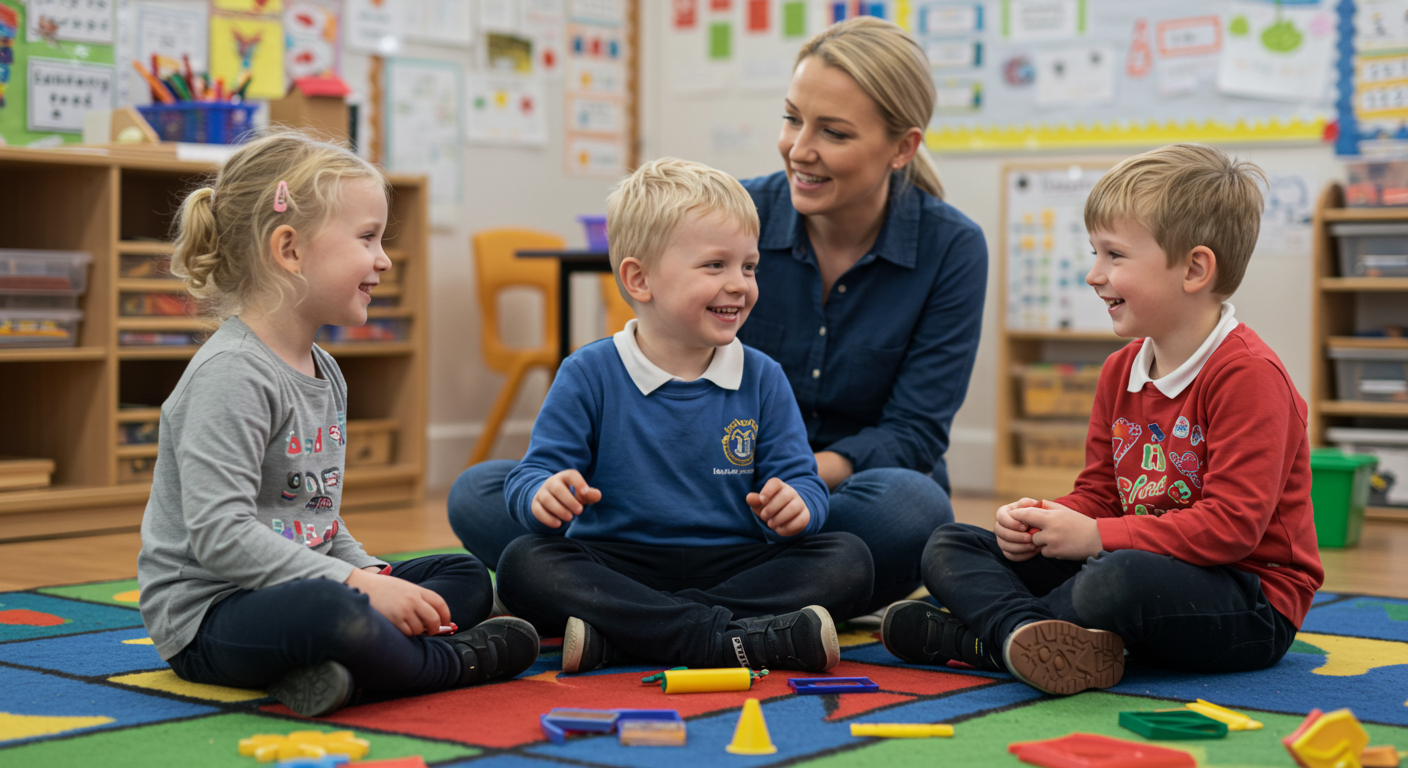
Which Skills Are Assessed in London Prep Schools 4+?
Navigating the maze of prep school admissions can feel overwhelming, especially when it comes to the coveted London prep schools 4+ entry point. Understanding what skills are tested not only helps parents prepare their little ones but also sheds light on what these schools value most.
From literacy and numeracy to social and emotional development, we’ll explore the essential skills your child will need to shine. Ready to dive into the world of London prep schools? Let’s break it down!
Overview of London Prep Schools

London prep schools present a range of educational philosophies, catering to various learning preferences—from traditional curricula to innovative, play-based environments.
Many of these institutions emphasise small class sizes, which allows for personalised attention for each student and subsequently enhances their academic performance. For example, St. Paul’s is renowned for its rigorous academic standards and limits each class to a maximum of 20 students.
Schools like Westminster Under adopt a holistic approach to education, seamlessly integrating arts and sports into the curriculum to promote well-rounded development.
Extracurricular offerings at these schools can be quite distinctive, featuring activities such as coding clubs or environmental studies programmes. This reflects their commitment to equipping students for a rapidly evolving world.
Importance of the 4+ Entry Point
The 4+ entrance point represents a significant milestone, marking the transition from early years education to more structured academic settings in prep schools. This decision holds considerable importance, as it can greatly influence a child’s educational trajectory.
For example, data indicates that children admitted at the 4+ level enjoy a 70% higher acceptance rate into elite secondary schools compared to those who enter at the 5+ level.
During this critical year, children develop essential social and cognitive skills that prepare them for a structured learning environment. By focusing on early literacy, maths readiness, and emotional development in pre-school programmes, educators can significantly enhance a child’s preparedness, laying a solid foundation for lifelong academic success.
Core Skills Assessed
The core skills assessed during the 4+ entry assessments include literacy, numeracy, social skills, and emotional development. These assessments help schools determine what they are really looking for in prospective students.
These areas are essential for a child’s overall success.
Literacy Skills
Literacy skills assessed in the 4+ evaluation emphasise phonemic awareness, vocabulary recognition, and early reading competencies, all of which are vital for academic success. To support the development of these skills, parents can take several practical steps.
- First and foremost, reading daily is essential; it may be helpful to set aside at least 20 minutes each day for shared reading experiences.
- Additionally, incorporating phonics apps such as ‘Reading Eggs’ can be beneficial; these applications offer interactive exercises that enhance phonemic awareness and letter recognition. Related insight: 4+ Entrance Exams – Academic Success | Empowering Parents provide a comprehensive understanding of what these assessments entail.
- Engaging children in storytelling by having them retell plots or create their own narratives can further boost vocabulary recognition and comprehension.
- Simple activities like rhyming games or sound matching can also effectively promote phonemic skills in a fun and engaging manner.
Numeracy Skills
The numeracy skills assessed in the 4+ evaluations encompass basic number recognition, an understanding of simple shapes, and introductory counting abilities.
To enhance these skills, interactive activities play a crucial role. Engaging children with toys such as LEGO bricks or counting bears offers valuable hands-on counting practice. Additionally, apps like ‘Endless Numbers’ can provide an engaging way for children to practise their numeracy skills.
For a practical exercise, consider organising a shape scavenger hunt around the house or in the garden. Children can search for and classify objects based on their shape and size. These hands-on experiences not only foster a deeper understanding of numeracy concepts but also make the learning process enjoyable. To further support your child’s academic journey, you might be interested in understanding the role of educators in shaping early learning experiences (as mentioned in our Meet the Teachers).
Social Skills
Social skills play a vital role in the 4+ assessment, highlighting the importance of sharing, cooperation, and effective communication among peers. To cultivate these skills, participating in group activities such as team sports, art classes, or organised playdates can be extremely beneficial.
For instance, arranging a weekly football match not only promotes teamwork but also encourages healthy competition. Alternatively, structured games like ‘Simon Says’ or group storytelling sessions can enhance skills in attentive listening and collaboration.
Assessments of social skills may involve observations of interactions during these activities, with a focus on criteria such as turn-taking and conflict resolution. Additionally, tools like the Social Skills Improvement System (SSIS) can provide valuable benchmarks for evaluating a child’s progress (learn more about our approach in the About Us section).
Emotional Development
Emotional development is assessed to understand a child’s self-regulation and their ability to comprehend and express emotions in an appropriate manner.
Enhancing emotional intelligence can be effectively achieved through techniques such as role-playing and storytelling. For example, by implementing the ‘Social and Emotional Learning (SEL)‘ curricula, educators can create scenarios where children enact various emotions, which helps them in identifying and managing their feelings.
Tools like the ‘Emotion Wheels‘ can facilitate discussions during these activities, enabling students to articulate their emotions more clearly. Additionally, incorporating storytelling sessions where children share their personal experiences promotes empathy and understanding among peers.
Over time, this approach not only expands their emotional vocabulary but also fosters deeper interpersonal connections within the group.
Literacy Skills in Detail

An in-depth examination of literacy skills highlights the essential components that young learners need to master before the 4+ assessment.
Phonemic Awareness
Phonemic awareness plays a vital role in literacy, enabling children to identify and manipulate the sounds within words, which is essential for reading success. To enhance phonemic awareness, it is beneficial to engage children in enjoyable rhyming games. For instance, creating silly poems or songs that emphasise sound repetition can be both fun and educational.
Additionally, sound-matching exercises are effective activities where children match pictures of items that have similar beginning or ending sounds. There are also excellent resources available, such as ‘PhonicsPlay,’ which offers interactive games designed to cater to various phonics skills, making the learning process enjoyable.
A simple activity that can be done at home involves reading aloud to children and encouraging them to identify rhyming words within the story. This not only fosters their listening skills but also contributes to their overall language development.
Vocabulary Recognition
Vocabulary recognition entails understanding and utilising age-appropriate words, which serves as a foundation for effective communication and comprehension.
To enhance vocabulary recognition, one should engage with a wide range of reading materials, including fiction, non-fiction, and poetry. This diversity exposes individuals to various contexts and word usages, enriching their language skills.
Moreover, utilising tools such as flashcards for repetitive learning can be beneficial. Applications like Anki or Quizlet allow for the creation of custom flashcards, enabling daily practice and reinforcing memory retention.
Plus this practice, interactive resources like Vocabulary.com offer opportunities for contextual learning and quizzes. By immersing oneself in both reading and practical exercises, individuals can significantly expand their vocabulary over time.
Early Reading Skills
Early reading skills include recognising letters, understanding the structure of stories, and making predictions based on illustrations. To effectively support early reading, it is beneficial to engage in interactive reading sessions. During these sessions, take the time to pause and ask questions about the story or the illustrations.
Encouraging children to predict what might happen next not only fosters their comprehension but also enhances their critical thinking abilities. Utilising resources like ‘Epic!‘, a comprehensive online library of children’s books, allows you to select stories that resonate with their interests.
Establishing a storytelling routine can further enhance their reading experience. Each week, allow your child to choose their favourite book to read aloud. This practice not only boosts their confidence but also reinforces their language skills in a supportive and enjoyable environment.
Numeracy Skills in Detail
Understanding numeracy skills is vital for effectively supporting children’s early mathematical development as they prepare for the 4+ assessment.
Basic Number Recognition
Basic number recognition is essential as it helps children identify and understand numbers, laying the groundwork for more advanced mathematical concepts. To enhance this skill, it is beneficial to incorporate engaging activities, such as number games and counting songs.
For instance, using the ‘Ten Frame Tool’ allows children to visualise numbers up to ten, which fosters their understanding through hands-on manipulation.
Another effective approach is to sing counting songs like ‘Five Little Ducks.’ This method provides a musical context in which children can practise counting in an enjoyable way.
Additionally, interactive apps such as ‘Endless Numbers’ offer fun and educational experiences designed specifically for their age group. By combining these resources, one can create a dynamic learning environment that effectively promotes number recognition.
Understanding of Simple Shapes
Understanding simple shapes is crucial for developing spatial awareness and foundational geometry skills in early learners. Engaging activities can significantly enhance shape recognition.
For example, conducting a shape scavenger hunt allows children to find objects in their environment that resemble circles, squares, and triangles.
This can be complemented with arts and crafts, where children create their own shapes using coloured paper or playdough. Additionally, incorporating games like ‘Shape Bingo’ reinforces their learning in a fun and interactive way.
Tools such as shape sorting toys or digital apps specifically designed for young learners can also be advantageous, providing hands-on experiences that deepen their understanding of geometric concepts.
Social Skills in Detail

Social skills play a crucial role in 4+ assessments, highlighting a child’s capacity to engage positively in various social environments.
Sharing and Cooperation
Sharing and cooperation are essential social skills assessed during the 4+ entry process, playing a critical role in fostering teamwork and building friendships.
To nurture these skills in young children, it is beneficial to incorporate cooperative games such as ‘Parachute Play’ or ‘Building Together.’ For example, in Parachute Play, children collaborate to lift and lower the parachute, which emphasises the importance of teamwork and communication.
Engaging them in group projects, such as creating a shared art mural, can also be effective. This activity not only requires them to share materials but also encourages discussions about ideas and collective decision-making.
Additionally, utilising tools like simple board games that reward collaborative efforts can further enhance these skills. Such activities provide not only enjoyment but also valuable lessons in sharing and working together.
Listening and Communication
Effective listening and communication skills are vital for engaging with both peers and adults, contributing significantly to a child’s overall social competence.
To enhance these skills, one might consider incorporating storytelling sessions where children can share their own narratives. This approach fosters both verbal expression and attentive listening.
Active listening games, such as ‘Talk it Out’ cards, are excellent tools to encourage children to ask questions and provide feedback on what they hear. Additionally, role-playing activities allow children to practise various communication scenarios, ranging from negotiation to empathy.
These strategies not only promote engagement but also lay the groundwork for strong interpersonal skills that will be valuable throughout their lives.
Emotional Development in Detail
Emotional development plays a vital role in preparing children for the 4+ assessment, as it significantly impacts their ability to navigate social situations effectively.
By fostering emotional skills, children become better equipped to manage interactions with peers and adults, which is essential for their overall success in various assessments and real-life situations.
Self-Regulation
Self-regulation allows children to effectively manage their emotions and behaviour, which is essential for successful social interactions.
To promote self-regulation, it is beneficial to incorporate mindfulness exercises into daily routines. Techniques such as deep breathing, guided imagery, and yoga can enhance children’s awareness of their emotions.
Establishing clear and consistent routines provides the necessary structure that supports emotional stability. Resources like ‘Mindful Schools’ can be valuable for introducing mindfulness concepts to children in an engaging way.
It is advisable to start with short sessions—around five minutes each day—and gradually increase the duration as they become more comfortable with the practices. This incremental approach helps to build their capacity for self-regulation over time.
Understanding Emotions
Understanding emotions plays a vital role in helping children recognise their own feelings and empathise with others, which is essential for fostering healthy relationships.
To enhance emotional understanding, one might consider engaging in activities like emotion charades, where children can act out different feelings and guess what they are. This approach not only promotes the recognition of emotions but also encourages playful interaction among peers.
During storytime, it can be beneficial to pause and discuss the feelings of the characters, prompting children to share their own experiences related to those emotions. Additionally, apps such as ‘Mood Meter’ can assist children in tracking their moods visually, providing a practical tool for daily emotional awareness.
Incorporating these activities into regular routines can significantly enhance children’s emotional intelligence.
Preparation for the 4+ Assessment

Effective preparation for the 4+ assessment requires targeted activities designed to develop the necessary skills, all while fostering active family involvement.
Recommended Activities
Engaging in recommended activities can significantly enhance a child’s readiness for the 4+ assessment, making the learning experience both enjoyable and effective.
One effective approach is to incorporate storytelling sessions into your daily routine. By reading for just 20 minutes each day, you can encourage your child to predict story outcomes, which stimulates their imagination and comprehension skills.
Additionally, consider introducing interactive maths games like ‘Maths Bingo’ for about 15 to 30 minutes each week. Utilising simple addition or subtraction problems can make maths practice both fun and engaging.
Nature walks can also play a vital role in your child’s development. Taking a weekly stroll to discuss various plants and animals for around 30 minutes provides an excellent opportunity for exploration and learning.
Each of these activities not only fosters critical thinking and vocabulary development but also nurtures a genuine appreciation for learning, all while aligning with the objectives of the assessment.
Parental Involvement
Active parental involvement plays a crucial role in a child’s success as they prepare for the 4+ assessment, directly influencing their learning outcomes.
To effectively support your child, it may be beneficial to establish a structured daily routine that incorporates dedicated study times, breaks, and proper nutrition.
Attending workshops offered by your child’s school can provide you with specific strategies for the assessment. Additionally, regularly seeking feedback from educators regarding your child’s progress and areas that may need improvement is essential.
Utilising this feedback effectively allows you to adjust your approach, whether that involves extra practice at home or redirecting focus to particular subjects. Such comprehensive involvement can foster a supportive environment that promotes confidence and encourages academic growth.
Frequently Asked Questions: Which Skills Are Assessed in London Prep Schools 4+
What skills do London prep schools test in the 4+?
London prep schools often test for skills in areas such as language and literacy, numeracy, critical thinking, and social development.
Are there any specific academic skills that are tested in the 4+?
Yes, London prep schools may assess a child’s proficiency in skills like reading, writing, maths, and problem-solving as part of their 4+ admissions process.
Do London prep schools also evaluate a child’s social and emotional skills at the 4+ level?
Yes, most London prep schools will also assess a child’s social and emotional development, including their ability to interact with peers, follow instructions, and regulate their emotions.
What type of language and literacy skills are typically tested in 4+ admissions?
London prep schools may evaluate a child’s understanding of letters, sounds, and basic reading and writing skills such as letter recognition, phonics, and letter formation.
What about numeracy skills? What are London prep schools specifically looking for in 4+ applicants?
Numeracy skills that may be tested at the 4+ level include counting, number recognition, basic addition and subtraction, and understanding basic mathematical concepts.
How can I help my child prepare for these skills before applying to London prep schools?
You can help your child develop these skills by engaging in activities that promote language and literacy, numeracy, critical thinking, and social development. Reading, playing educational games, and practising basic maths concepts are all great ways to prepare your child for 4+ admissions tests.



